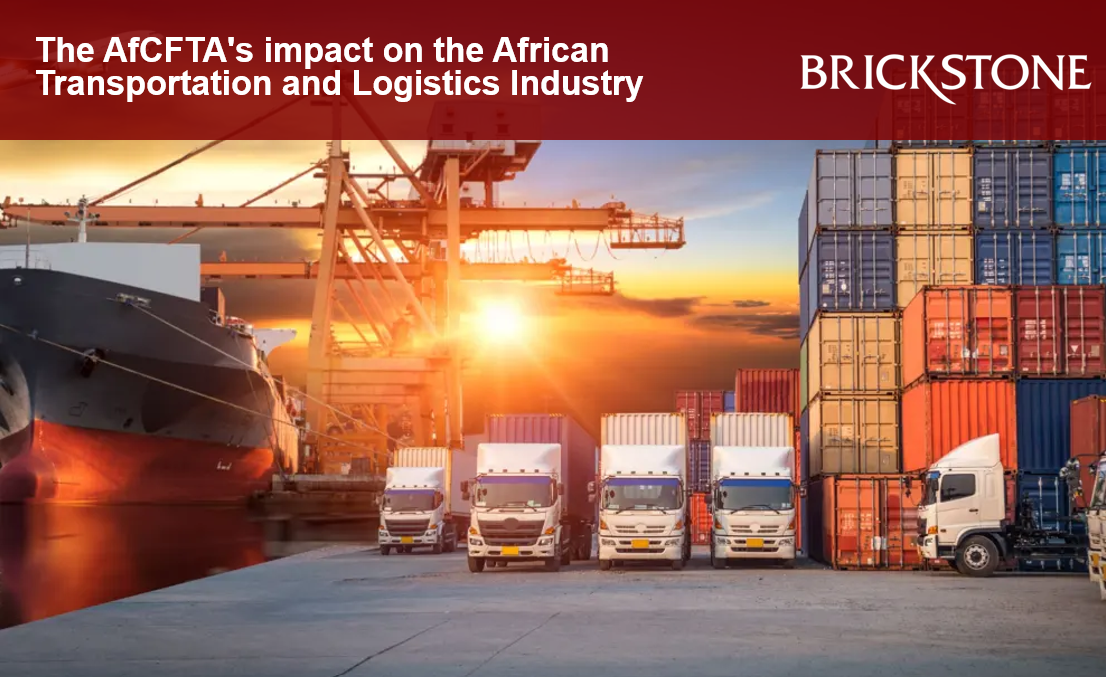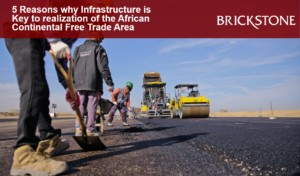The AfCFTA’s impact on the African Transportation and Logistics Industry
It aims at accelerating intra-African trade, and boosting Africa’s trading position in the global market by strengthening Africa’s common voice and policy space in global trade negotiations.
Realisation of this goal will help create jobs, reduce poverty rate, and boost Africa’s economic status at the world stage.
This article by Brickstone reviews some institutional reports on the impact of the AfCTA on the African Transportation and Logistics Industry.
The African Continental Free Trade Area (AfCTA)
The African Continental Free Trade Area (AfCFTA) is a free trade area encompassing most of Africa, aimed at boosting intra-African trade, and enabling African countries to proactively and swiftly respond to the twin green and digital transitions Africa faces in the 2020s. The flagship, if fully harnessed, houses enormous opportunities and potential such as positive economic outcomes, job creation, poverty reduction, and improvement of the quality of life of the people.
According to the Cooperative Logistics Network , the implementation of the African Continent Free Trade Agreement (AfCFTA) as at 1st January 2021, allowed the African nations to officially commence trade under a new free trade area across the continent. It has also created the largest free market in the world by connecting 1.3 billion people from 55 nations with a total GDP of $3.4 trillion.
The AfCFTA and its impacts on the African Transportation and Logistics Industry
The following are ways in which the AfCFTA will help the transportation and logistics industry in Africa:
Boost intra-African trade: The World Bank affirmed that the implementation of the AfCFTA will improve intra-African exports by more than 81% and as a result, the exports with countries outside Africa will increase by 19% within the next 15 years. This means that the growth of intra-African trade, providing the African countries with the option of supply chain diversification, will largely benefit the freight forwarders in Africa.
Removal of trade barriers and import costs: One of the main objectives of the AfCFTA is to create a free trade area through the elimination or reduction of tariff and non-tariff barriers amongst the Countries that are parties to the agreement. This will have a positive impact on the pricing of commodities, transport time of cargoes, and market opportunities for African manufacturers, all of which will benefit the shippers in more than one way.
Investment in infrastructure: Adequate and resilient rail and road infrastructures across the continent are needed for the realisation of the AfCFTA. This development will greatly help the shippers with the transportation of perishable shipments, and birth a shift towards a sustainable multimodal transportation.
Improve e-commerce: The AfCFTA is also aimed at fostering the e-commerce of all member countries. The realization of this goal creates avenues for independent freight forwarders in Africa.
Conclusion
Ranging from the creation of new trade routes, to a growth in the volume of exports which will tanslate into a faster and less expensive transport system and improved connections between the domestic and international transport and logistics forwarders, the implementation of the AfCFTA will have a large positive impact on the African Transportation and Logistics Industry.
Read more here.






